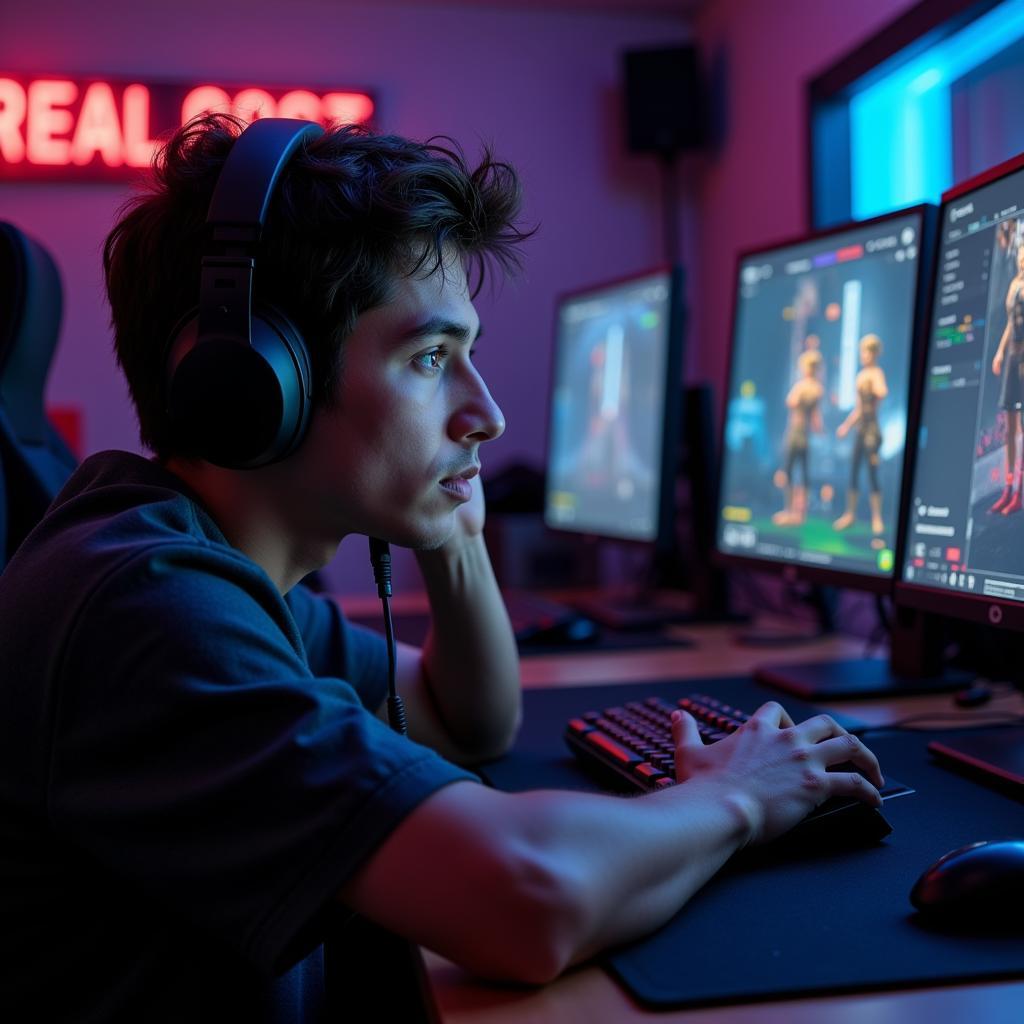“As a captain, you must be cold.” These words, uttered by countless seasoned gamers, highlight a crucial aspect of leadership and strategic thinking, particularly in competitive gaming environments. While seemingly harsh, this mantra doesn’t advocate for heartlessness. Instead, it speaks to the necessity of detachment – the ability to separate emotions from rational decision-making when the stakes are high.
The Perils of Emotional Gaming: Why Detachment Matters
In the heat of the moment, emotions run high. A string of losses can lead to frustration, a surprise attack can trigger panic, and a coveted victory within reach can incite anxiety. While these emotions are natural human responses, they can be detrimental to a gamer’s performance, especially for those in leadership roles.
Emotional decisions are often impulsive and reactive, lacking the careful consideration and strategic foresight needed to outmaneuver opponents. A captain clouded by anger might launch a reckless attack, while one crippled by fear might hesitate, missing a crucial opportunity. This is where the art of detachment comes into play.
Cultivating a Stoic Mindset: Strategies for Cold-Headed Gaming
Detachment, in this context, is not about suppressing emotions entirely. It’s about acknowledging them, understanding their potential impact, and consciously choosing to base decisions on logic and strategy rather than fleeting feelings. Here’s how you can cultivate this valuable skill:
-
Practice Mindfulness: Take time to center yourself before and during gameplay. Deep breathing exercises or a few moments of meditation can help you become aware of your emotional state and create a space between your feelings and your actions.
-
Focus on the Present: Dwelling on past mistakes or worrying about future outcomes will only hinder your performance. Stay present in the game, focusing on the immediate situation and the next strategic move.
-
Objectively Analyze Situations: Treat each challenge as a puzzle to solve, separating your ego from the outcome. Analyze the situation, identify your options, and choose the course of action that aligns with your overall strategy, even if it means making a difficult sacrifice.
 Gamer Displaying Detachment During Gameplay
Gamer Displaying Detachment During Gameplay
The Captain’s Role: Leading with Logic and Inspiring Confidence
The ability to remain detached is especially crucial for captains and in-game leaders. Your teammates look to you for guidance and support, and your emotional state can directly impact their morale and performance.
A calm and collected captain inspires confidence, even in the face of adversity. They can analyze setbacks without placing blame, identify strengths and weaknesses within the team, and adjust strategies on the fly without succumbing to pressure. This level-headedness is essential for fostering teamwork, making tough calls, and guiding the team towards victory.
Detachment: Not Heartlessness, But a Calculated Path to Success
Remember, “being cold” doesn’t equate to being heartless. It’s about harnessing your emotions and channeling them into a powerful force for strategic decision-making. By mastering the art of detachment, you can lead your team with a clear mind, adapt to ever-changing circumstances, and ultimately achieve greater success in the gaming world and beyond.
Frequently Asked Questions about Detachment in Gaming
1. Won’t detaching myself from the game make it less enjoyable?
Not necessarily. While it might seem counterintuitive, detachment can actually enhance your enjoyment by reducing frustration and allowing you to appreciate the strategic intricacies of the game.
2. How can I avoid becoming overly critical of my teammates when I’m focused on strategy?
Remember that everyone makes mistakes, and constructive feedback is always more effective than harsh criticism. Focus on providing specific suggestions for improvement, using a supportive and encouraging tone.
3. What if I struggle to control my emotions during intense moments in a game?
It takes time and practice to develop emotional resilience. Don’t be discouraged if you find it challenging at first. Continue practicing mindfulness techniques and focus on making small improvements over time.
4. Is detachment only important for competitive gamers?
While particularly crucial in competitive settings, detachment can benefit gamers of all levels. It can help you approach challenging games with a more strategic mindset, persevere through difficult levels, and ultimately enhance your overall gaming experience.
5. Can detachment help me in other areas of my life?
Absolutely. The ability to make rational decisions under pressure is a valuable life skill. The techniques you develop to cultivate detachment in gaming can be applied to various situations, from handling stressful work deadlines to navigating interpersonal conflicts.
Need further assistance? Contact our 24/7 support team:
Phone: 0902476650
Email: [email protected]
Address: 139 Đ. Võ Văn Kiệt, Hoà Long, Bà Rịa, Bà Rịa – Vũng Tàu, Việt Nam.





